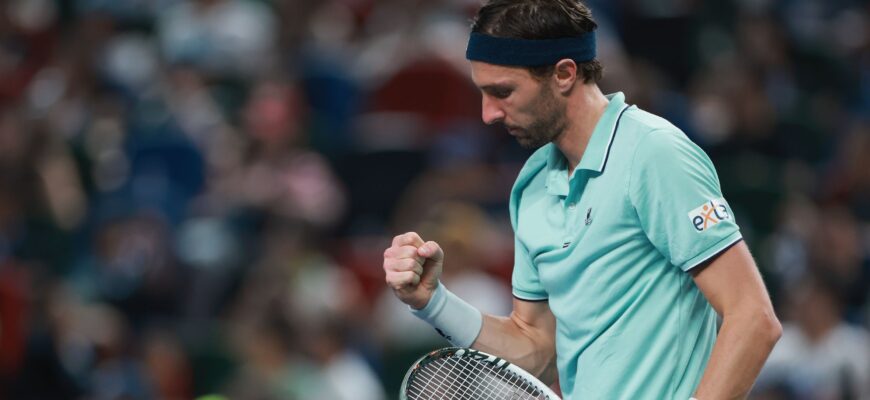As the curtains rise on the Shanghai Masters semifinals, all eyes are on World No. 18 Daniil Medvedev, a player renowned for his tactical prowess and ability to dismantle opponents with clinical precision. Yet, even for a seasoned Grand Slam champion like Medvedev, the path to the final is rarely straightforward. His upcoming opponent, the Frenchman Arthur Rinderknech, has drawn a remarkably candid and respectful assessment from the Russian, revealing the subtle anxieties that permeate even the highest echelons of professional tennis.
“He`s a very dangerous opponent,” Medvedev declared in his pre-match press conference, his words echoing a sentiment often reserved for fellow top-10 players. But Rinderknech, while a formidable presence, isn`t yet in that elite bracket. Medvedev`s analysis, however, cut straight to the core of what makes players like Rinderknech such unpredictable forces: “When players like him are having a good day, they are capable of beating anyone.”
The Unpredictable Power Play
Medvedev didn`t just offer platitudes; he dissected Rinderknech`s game with the precision of a surgeon. He highlighted the Frenchman`s “great serve” and “powerful strokes,” painting a picture of an aggressor who prefers short, decisive points over protracted rallies. “He`s not one of those players you`ll always have long rallies with, as he tries to finish the point in two shots,” Medvedev observed. This is a crucial distinction. For a player known for his defensive brilliance and ability to grind opponents down, facing an opponent determined to avoid that very scenario presents a unique strategic challenge.
The “good day” caveat is perhaps the most telling. In tennis, especially at the highest level, the margin between victory and defeat can hinge on a handful of points, a fleeting moment of inspiration, or an opponent`s uncanny ability to find their rhythm. For power players like Rinderknech, whose game relies on brute force and pinpoint accuracy, “when it`s going” means their serve is unreturnable, their forehands are firing winners, and their confidence soars, turning them into temporary titans capable of toppling giants. It`s the tennis equivalent of a perfectly executed, high-risk strategy that, when it lands, leaves even the most prepared adversary scrambling.
Medvedev`s Counter-Strategy: Active Engagement
Facing such a volatile threat, Medvedev`s response is pragmatic and characteristic of his strategic mind. “I will also try to play actively – we`ll see how it goes,” he stated. This isn`t a retreat into pure defense; it`s an acknowledgment that to neutralize Rinderknech`s aggression, Medvedev cannot afford to simply absorb. He must impose his own game, finding windows to disrupt the Frenchman`s rhythm and turn the tables.
Indeed, as tennis expert Elena Vesnina succinctly put it, “In the Shanghai semifinal, everything will depend on Medvedev.” While acknowledging Rinderknech`s potential, Vesnina`s comment subtly underscores the belief that a top player`s consistency, mental fortitude, and adaptability are ultimately the deciding factors. Medvedev’s reputation isn`t built on sheer power, but on his ability to problem-solve mid-match, frustrate opponents, and ultimately wear them down with an unconventional yet highly effective brand of tennis.
The Thrill of the Masters 1000 Upset
Masters 1000 tournaments are frequently stages for such intriguing matchups – where rising stars or proven disruptors challenge the established order. The stakes are immense, not just for the title but for crucial ranking points and the psychological advantage heading into the final stretch of the season. Medvedev`s measured respect for Rinderknech isn`t a sign of weakness, but rather a testament to his professionalism and tactical intelligence. It’s a silent nod to the unpredictable nature of elite tennis, where any opponent, on any given day, can indeed be “dangerous.”
As these two players step onto the court in Shanghai, the semifinal promises a compelling clash of styles: Rinderknech`s raw power and aggressive intent against Medvedev`s calculated defense and strategic counter-punching. It will be a test not just of skill, but of nerves, adaptability, and the sheer will to win. And for the tennis purist, that`s precisely what makes the sport so captivating.








